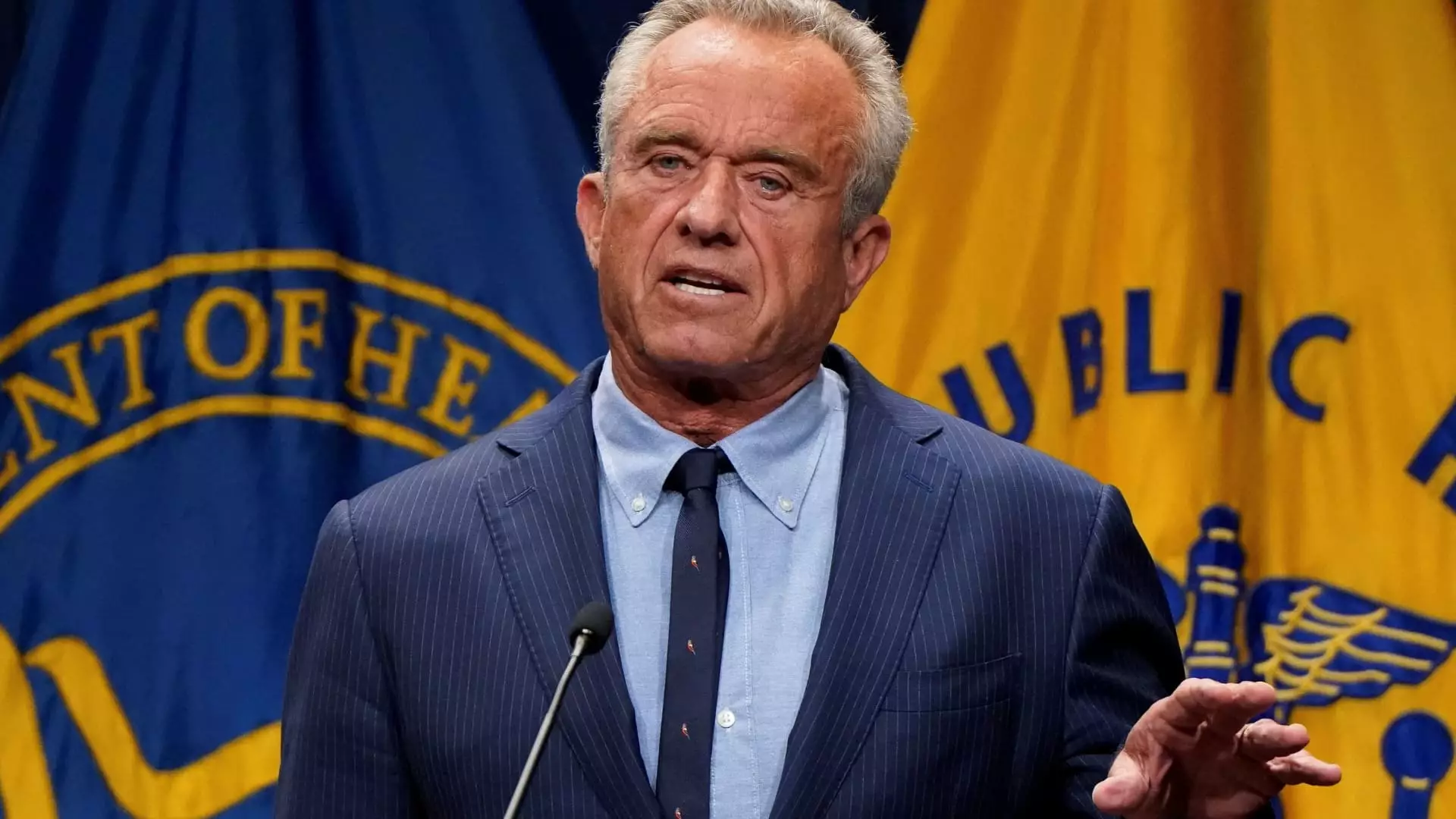In a disheartening move that reverberates through the halls of public health, Health and Human Services Secretary Robert F. Kennedy Jr. has decisively reshaped the landscape of vaccine advisory by revamping the Advisory Committee on Immunization Practices (ACIP). The recent appointments, which include prominent figures from the anti-vaccine movement, offer a stark illustration of how political maneuvering can undermine the health of millions.
Kennedy’s dismissal of the previous committee—composed of rigorous experts well-versed in epidemiology and immunization—signals a troubling shift in the foundation of vaccine policy and public health strategy. With his new appointees, many of whom possess a dubious track record regarding vaccine skepticism, we are confronted with the uncertain specter of potential public health ramifications. The stakes are exorbitantly high when discussing vaccinations that protect against diseases potentially devastating to children, who are the most vulnerable population segment.
Questionable Expertise and Public Health Risks
The newly formed committee is, quite frankly, alarming. Among Kennedy’s selections is Dr. Robert Malone, a self-proclaimed pioneer of mRNA technology, who has pivoted towards becoming a staunch opponent of vaccines. This incompatibility raises critical questions about objectivity and safety in the advisory process. These members are plagued by a complicated relationship with truth and public health, glossing over scientific consensus in favor of promoting skepticism without standing on a solid empirical foundation.
Dr. Paul Offit’s concerns about the “less informed” quality of recommendations from ACIP are not merely academic; they reflect the reality of public health governance. Institutions like the CDC depend on sound and reliable advice from ACIP to determine vaccination policies that could affect insurance coverage and public health funding. When the expertise dominating these recommendations is fundamentally biased, the implications can be catastrophic.
Kennedy may tout the “highly credentialed” nature of his new appointees, yet the prevailing narratives espoused by these individuals often have little grounding in science or clinical relevance. Depending on individuals who treat well-documented vaccination protocols with disdain could shift CDC guidelines towards harmful territories.
The Public Outcry and Skepticism
The public reaction to this overhaul has been visceral and adamant. Public health advocates like Lawrence Gostin express a mainstream sentiment of alarm. The very fact that eight individuals prone to drawing misleading conclusions can hold sway over vaccination policy poses a clear threat to the health of future generations. The negative ramifications of dethroning medical accountability could set a ghastly precedent.
Kennedy’s actions come at a time of already fraught vaccine confidence, which has been compounded by misinformation campaigns across social media platforms. You don’t have to be a public health scholar to realize that further erosion of trust in vaccines could lead to resurgent outbreaks of diseases once deemed under control.
While Kennedy frames his hiring agenda as a move toward “evidence-based medicine,” the underlying motivations seem steeped in ideology rather than a genuine concern for public health. It is a form of governance that might cater to a singular narrative, potentially overlooking the broader scientific discourse that has kept us safe for decades.
A Uniquely American Battle Over Truth
What we are witnessing is a uniquely American battle—a clash between empirical evidence and ideologically driven rhetoric. In a landscape where misinformation runs rampant, the implications of Kennedy’s decisions cast a long shadow over the trustworthiness of our public health apparatus.
Characters like Dr. Joseph Hibbeln and Dr. Martin Kulldorff join this controversial ensemble, fostering public apprehension while striking deep chords of worry among educators and health practitioners. When reputable experts voice their concerns, as Offit has done, they provide an urgent warning that should not be sidelined or dismissed casually; these are insightful calls to action based on years of rigorous training and experience.
The net effect of these changes may open a Pandora’s box filled with public health dilemmas, from soaring cases of preventable diseases to an increasing chorus of anti-vaccine sentiment among communities already on the fringe. Ignoring constructive expert advice for select individuals will not only distort vaccine efficacy but could plunge the nation into crises reminiscent of a pre-vaccine era, charged with fear and confusion.
We, as a society, must remain vigilant. The nuances of public health policy should never bow down to political whims or ideologically motivated selections. This is about the health of our communities, and they deserve better than the dangerous flirtation with incompetence and misinformation.


Leave a Reply